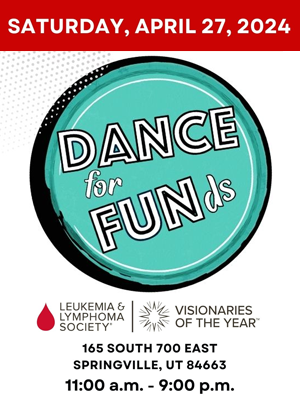The Truth About Gossip
By Saige Miller on July 7, 2019
Fifty-two minutes.
That’s how long The Journal of Social Physiological and Personality Science says humans spend gossiping on average every day. Thankfully, the Journal says the majority of gossip is harmless chit chat and is even needed for healthy social interaction.
However, 15% of the gossip the researchers studied is mean-spirited.
Dr. Jackie Chen, Assistant Professor of Psychology at the University of Utah, joined Let’s Get Moving with Maria to discuss the consequences of negative gossip, and the small strides we can take to hold ourselves accountable for the judgment we carry.
“Are we aware we are even being judgmental when we are talking about others?” asked Maria Shilaos.
“We’re probably not aware,” Dr. Chen said simply.
Gossip is sneaky
More often than not we tend to gossip in a way we presume makes us non-judgmental, researchers say.
Dr. Chen explains common disclaimer phrases like, “I heard…” and “I don’t know if this is true…” help “liberate us from any wrongdoing,” because we aren’t admitting we agree with the negative gossip.
However, research indicates the person receiving the information isn’t evaluating the comments the same way our minds do. People don’t like to hear negative things, the research shows. It doesn’t matter what kind of negative gossip we’re sharing–we don’t look good sharing it.
Talking smack doesn’t only harm our self-image, it has the ability to misinform about others. Misinformation can “hinder their [gossipee’s] advancement or social cohesion,” said Dr. Chen.
Additionally, using disclaimer statements “strengthen stereotypes” when talking about race and gender, said Dr. Chen. For example, comments such as, “I don’t believe this, but most people think women are worse at science than men,” relays the notion that most people believe the stereotype.
Raising self-awareness
The researchers find that certain positive actions can replace harmful gossiping.
First things first, be kind to yourself, they say.
Dr. Chen admits talking about someone who isn’t there is human nature. We all gossip. It’s about acknowledging what kind of language we use and the setting we’re in.
A big step to decreasing the amount of negative gossip we share is by recognizing when we use disclaimer statements. When we say such things, there’s a good chance we know deep down the statement is pessimistic, according to the research.
Dr. Chen’s advice is once a disclaimer statement is uttered, “take a pause, take a beat, and don’t relay that information.”
Additionally, identify potential triggers that cause you to judge. Ask yourself why you might be passing along judgment to others.
For example, there might be a co-worker you dislike or a complicated relationship. Relevant topics are “areas of concern where you might want to watch yourself if you’re trying not to gossip,” said Dr. Chen.
Not all gossip is bad
The definition of gossip covers a wide range of conversations which don’t always include negative commentary. Gossip does serve a purpose.
“Sometimes we might pass along important information,” and it’s considered “part of the role of gossip within a social group,” said Dr. Chen. For example, explaining someone’s position at work to another person while they’re not present is essential to keep the work environment functioning.
Not only is gossip essential to the spread of important information, but also helps us make friends.
“One way to forge a bond with someone is to tell them information others might not be privy to,” said Dr. Chen.
Listen to the entire episode here: ksl360.com/letsgetmoving or wherever you get your podcasts! Follow us on Instagram and Facebook for more content!








